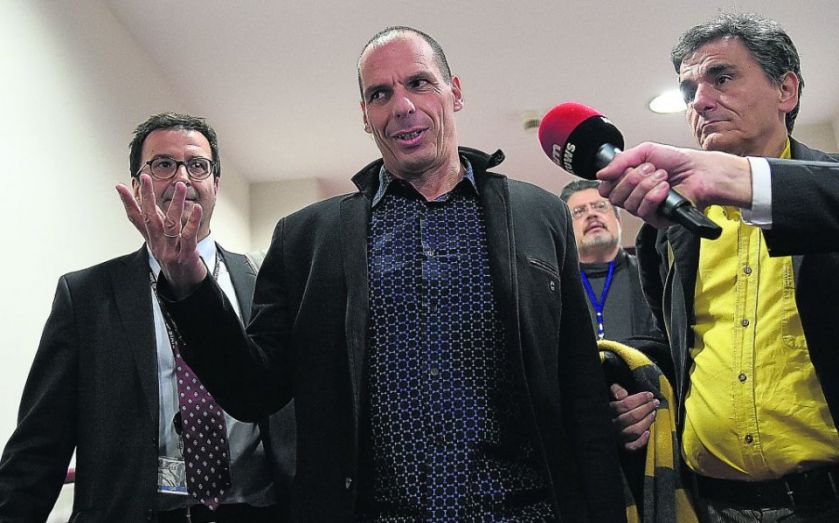Eurozone disarray as Greek talks collapse

Greece's crunch meeting with its fellow Eurozone states collapsed amid more bitter sniping last night, with the deadline looming for both sides to reach an agreement over the Mediterranean country’s bailout.
The head of a group of Eurozone finance ministers – known as the Eurogroup – insisted after talks broke down that the onus is on the Greek government to come back to the table, warning that they only have until the end of this week.
Yet a visibly-angered Yanis Varoufakis, Greece’s finance minister, slammed the Eurogroup’s approach to discussions. “The only way to solve Greece is to treat us like equals; not a debt colony,” he said, referring to the current bailout terms as “absurd” and “unacceptable.”
Varoufakis said that Greece went into the talks willing to compromise on its demands, yet “all we were getting back was a nebulous promise of some flexibility that was never specified.”
In a bizarre series of events, the maverick Greek finance minister said that he was presented with a draft statement by European Commissioner Pierre Moscovici which he was broadly happy with. Yet, Varoufakis claims, this draft was suddenly replaced by a new version which stressed “the current [bailout] programme” – implying that Greece would have to stick to measures that it vehemently opposes.

“[The original draft] was replaced with another document, that took us not just back to last Thursday, but indeed it took us back to last Wednesday – when we were pressurised to extend the current programme,” Varoufakis said.
“It proved impossible for the Greek government, despite our infinite goodwill, to sign the offered communique.”
Earlier in the evening Eurogroup boss Jeroen Dijsselbloem insisted that the group had been prepared to offer wriggle-room for Greece during a period in which it could renegotiate a new long-term bailout agreement. “My strong preference is and still is to get an extension of the programme, and I think it is still feasible,” Dijsselbloem said.
Last night Edward Scicluna, the finance minister of Malta, warned Greece that it must formally request a bailout extention. “That would be it; it would be a disaster,” he said, referring to the situation if Greece failed to do so. “Greece has to adjust, to realise the seriousness of the situation, because time is running out.”
The existing programme of loans to Greece ends on 28 February, the end of next week. The European Central Bank decides tomorrow whether to extend emergency lending to Greek banks.
SPIN OR SUBSTANCE?
Greek and European officials seemed unable to reconcile their semantic differences last night. Greece has insisted it does not want any extension to its current bailout programme which includes loans and reforms, but wants a bridging loan while negotiations take place regarding a longer-term deal.
“Having listened to a Greek colleague talk about a bridging arrangement, it may be words, but it sounds to me like an extension of the programme,” said Jeroen Dijsselbloem, president of the Eurogroup and Dutch finance minister. “I don’t really mind how you call it”.
Greek finance minister Yanis Varoufakis disagrees that the difference is semantic. “The real reason concerns a substantial disagreement on whether the task ahead is to complete a programme which this government was elected to challenge the logic of or to sit down with our partners, with an open mind and rethink this programme from scratch,” he said.
Raoul Ruparel, head of economic research at think tank Open Europe, told City A.M. “It is more than just wording I think. There is a substantial difference there and I think that it’s quite a closely held belief for Greece that it doesn’t want any kind of extension of the current programme.”
Dijsselbloem himself seemed to backtrack on his own words when he later said “I wish it was just a debate about words.”